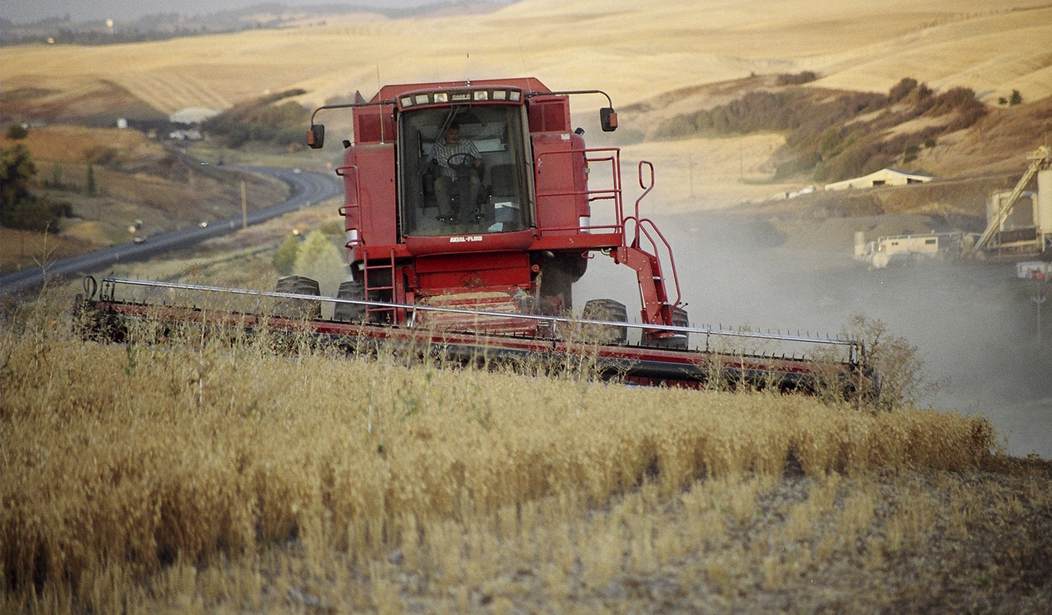Canadian consumers can now buy genetically modified (GM) salmon, which grows twice as fast as non-GM salmon and uses less feed.
Genetic modification has produced crops that are resistant to insects, diseases, and drought, are more nutritious and can grow more quickly.The result is more abundant harvests and lower-priced food.
Nevertheless, environmental groups, such as Greenpeace, oppose planting GM seeds.
Although GM foods do raise legitimate concerns, they can play an important role in alleviating hunger and malnutrition and thus should be permitted and encouraged in developing countries.
Environmental groups argue that GM foods have not been around long enough for us to know what harmful effects they might have on humans. They point to recent research showing adverse health effects of feeding GM foods to rats. They contend that as more farmers use GM seeds, the result is widespread cultivation of a single crop variety and overuse of herbicides, which discourages crop rotation and other environmentally sustainable practices.
Spores from GM seeds can spread and affect the crops of neighboring farmers. Some environmental groups have claimed that seed companies have pursued and won patent infringement lawsuits against farmers whose fields have been inadvertently pollinated by GM crops from neighbors’ land. This is a myth, according to an NPR report. Monsanto, a leading biotech firm, has pursued patent infringement lawsuits, but only against farmers who they claim deliberately planted GM seeds.
Adverse health effects, such as tumors in rats, are the result of feeding them “inordinately high amounts” of GM food over “unrealistic periods of time.” Americans have been consuming GM foods for twenty years, and no harmful health effects have been demonstrated in peer-reviewed research. Though consumers in the EU generally avoid food labeled as containing GM ingredients, the European Commission has recently concluded based on the results of numerous studies conducted over a 25-year period that genetic modification technologies are not riskier than conventional plant breeding technologies.
Recommended
In some environments, genetic modification makes it possible to expand food production and improve nutrition. An example of this is genetically modified sweet potatoes, which are larger and contain more vitamin A than sweet potatoes that have traditionally been grown in sub-Saharan Africa. If they became more widely available, they have the potential to save the lives of hundreds of thousands of African children who die from vitamin A deficiency.
Adopting GM crops could have significant impacts on human health in many parts of Africa. Delays in doing so have contributed to malnutrition, stunted growth and lives lost. Hundreds, if not thousands of lives could have been saved if Kenya had adopted genetically engineered corn in 2006 and Uganda had adopted the black sigatoka resistant banana in 2007. If the Nigerian government delays approving the insect-resistant Bt cowpea for one year, between 100 and 3000 lives could be lost.
Organizations, such as HarvestPlus have been promoting a process called biofortification to develop more nutritious food varieties. It breeds, tests, and distributes seeds that have more of the micronutrients that are most limited in the diets of the poor- vitamin A, zinc and iron.
Genetically modified seeds do raise some concerns about threats to local seed supplies from pollination of neighboring fields. This might justify strengthening laws that protect the property rights of farmers who prefer not to have their fields invaded by GM seeds. Nevertheless, it does not seem difficult for organic farmers with neighbors who grow GM crops to keep contamination of their crops to a very low level. Producers of those seeds, such as Monsanto, have indicated a willingness to pay to remove GM plants from fields where they do not belong.
Consumers in rich countries can afford to be choosy about what they eat. Some prefer spending more for organic food that has not been genetically modified. Genetic modification, however, can lower costs and improve the nutritional value of food, which could play a major role in improving the health and life expectancy of the poor in developing countries.

























Join the conversation as a VIP Member